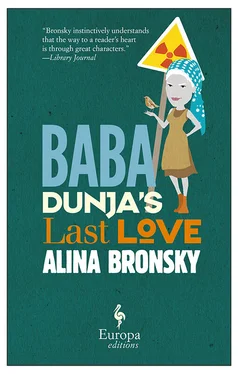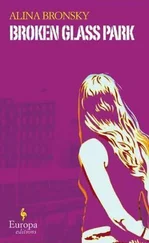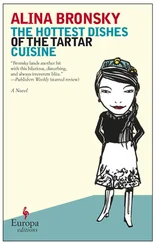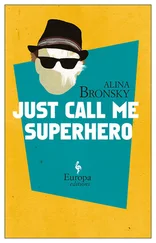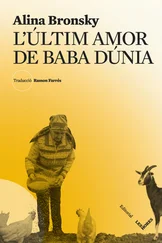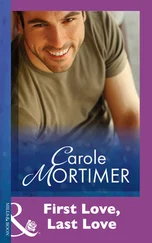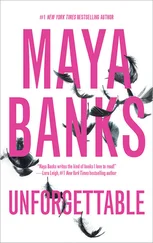And in my head is just one thought: What is the point of it all if Laura doesn’t exist?
“Of course she exists,” says Irina. “But she is very different than you think.”
The Laura I know is blonde and has sad eyes. Her face is so pretty it almost hurts. She doesn’t wear hair clips and never smiles. She is a marvel because she’s perfect. That’s the way my Laura is in the photos.
The Laura Irina speaks about has shaved her head. She has stolen money from her parents, had alcohol poisoning at age thirteen, has been thrown out of two schools, and doesn’t understand much Russian, which I don’t hold against her.
“She hates me,” says Irina and looks right through me with her rubbed-red eyes.
Irina has never spoken with me like this. She has never mentioned any problems. And now one like this, all at once. She needs to be hugged but we’re not accustomed to that.
“I’ve done everything wrong, Mother.”
“No,” I say. “I have done everything wrong. It breaks my heart that you have so many problems, and then I add to them with my murder. I just hope your husband doesn’t think badly about our family.”
“No idea what he thinks. We’ve been divorced for seven years.”
She says this casually, and I nod just as casually. What can you do. Children are more important. Our child is in trouble. And given that revelation, everything else pales by comparison — the conviction, my stroke, and the pillowcases in the prison.
“I can’t even give you the money I’ve been saving for Laura. It’s in a tea caddy in Tschernowo. Maybe someone can go get it.”
“I couldn’t give it to her anyway. I don’t know where she is.”
“I don’t understand.”
“What is there to understand? Laura ran away. She has been missing for months. She doesn’t check in with me. I have no idea where she is.”
And for that reason I say something that I am sure will help Irina. “Laura wrote me a letter.”
Once again I can’t say whether what I’m doing is right or wrong. I ask Irina to give me my plastic bag, which someone has placed next to the bed. I unpack: a bar of soap in a soapbox, a sponge, a half-empty tube of hand cream, and another of toothpaste. The red lipstick that Marja lent me for my time in prison. And the small, folded-up piece of paper that I open and smooth out.
“All I could understand was the ,” I say. “I wasn’t able to find anyone who could translate it for me.”
Irina rips the letter from my hands a little too hastily. My betrayal of Laura’s trust pains my soul. But Irina needs this now. She bends over the sheet of paper, her lips move silently.
“What does it say? Can you read it?”
She doesn’t answer, her eyes jump around the page, and her chin begins to tremble.
“Tell me, Irina.”
She lifts her head and looks at me. “It says exactly what I told you. What a screwed-up life she’s led. How awful her family is.”
“I’m sure she doesn’t mean it.”
“Oh, yes, she does. It says she hates us all. Just not you.”
“And where is she now?”
“Unfortunately, it doesn’t say.”

I know that Irina lied. There was more in the letter than she told me. She left quickly and said that she would come back as soon as possible. I told her not to worry about me. I will be just fine. She needs to tend to her child. I don’t want to believe all the stories she told about Laura. Laura is a good girl.
“You are still young and can even marry again if you would just learn to smile and to buy yourself some nice clothes,” I told her as she was leaving.
“From whom would I have learned how to do that?”
“I eventually learned it, too. And I was over seventy by then. I really only learned to smile after I moved back to Tschernowo.”
She cringed.
I took back the letter and this time hid it in a shoe. Irina didn’t like it, but I stood firm. She was allowed to read the letter but it belongs to me. And now I know it is written in English. Good girl, she probably thought her grandmother could speak a foreign language. Or that it would be easier for me to find someone to translate English than German.
I have my spot at the sewing machine back. As long as I have work to do, I can breathe easily. Our country needs pillowcases.
I’ve stopped writing letters. I’m trying to learn English instead. I got lucky: the woman who sits at the machine to my left can still remember her English lessons from school. She’s twenty-one years old and is serving a sentence for something she did to her newborn child. She doesn’t talk about it and I don’t ask. She teaches me an English word every day; in exchange I help her with her sewing.
My fingers feel as if they no longer belong to me. I pay no attention. Since the stroke I’ve sewn six hundred and fourteen pillowcases. That’s not so many, younger women work twice or even three times as fast as I do. But six hundred and fourteen people no longer have to sleep on bare pillows thanks to me.
At noon, as always, we have a break, we get ourselves thin fruit tea from the canister, most of the women go out into the yard for a smoke, I stand up and do some vein exercises and watch the sparrows as they flit between all the feet in rubber shoes looking for invisible crumbs. I think of the bullfinches of Tschernowo and wonder if I’ll ever come face-to-face with a crane again. In between I repeat the English words I’ve learned in the last few days. Bag. Eat. Teacher. Girl .
I’m not finished with pillowcase number six hundred and fifteen when a commotion erupts outside. I don’t look up; I’ll learn soon enough what it’s about. When they come inside I’m startled because they make a beeline for me. This can’t be good, I think, when so many come to get me. It is women in uniform and men in civilian clothes and vice versa, their faces blur together, and I feel very old.
One of them steps forward, stoops down to me, and says loudly that our president has pardoned me.

Our president is a good man. He looks a little like Jegor in his good years. Except that Jegor was a dishrag and our president is a man of iron will. With a man like him I would have had more respect for my marriage. He wouldn’t have shown any fear of Tschernowo, he wouldn’t have let himself be forced to abandon his village, he would have laughed at the offer of compensation and at the pointless vision tests and the vitamins that you received for free as a reactor victim.
Because our constitution is celebrating an anniversary, the president has pardoned a lot of criminals. I’m one of them. My crime is more serious than many others, but my age must have swayed him. Maybe he read about me in the paper and thought, Baba Dunja from Tschernowo should not die in prison. He has a soft heart, like all great men.
I’m just sorry about the pillowcase I’ve started. I make every one like it’s my last, and this one isn’t finished, and it bothers me. I’m urged to hurry along because I’m now free. I’m not prepared for this. I don’t know what to do. Pack up your things, they say. So I pack.
I don’t have much, the clothes belong to the prison, I lay them out tidily. Someone keeps looking into the cell. I hiss at him, hasn’t he ever seen an old woman fold three pairs of underpants. I make the bed and fluff the pillow. My things I place in the pillowcase, which I then tie closed.
I’m not surprised to see Arkadij. He probably wants to make sure everything is done properly and that nobody swaps my blood thinning medication for toilet cleaning fluid, as happened recently.
Читать дальше
